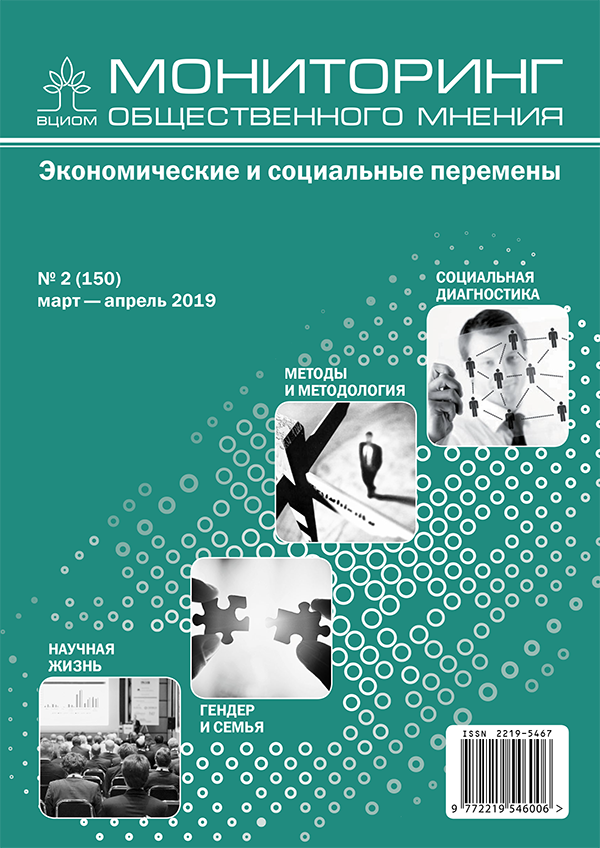Религиозность в Чеченской Республике и ее влияние на социальные институты и институты власти.
DOI:
https://doi.org/10.14515/monitoring.2019.2.08Ключевые слова:
ислам, Чечня, религиозность, религиозные практики, тарикат, шариат, этническая идентичностьАннотация
Представлены результаты опроса населения Чеченской Республики (2018 г., N = 600), посвященного исламу; опрос проводился случайным отбором из номеров сотовых телефонов, выделенных операторами мобильной связи для Чеченской Республики; выборка квотировалась по полу и возрасту. Практически все участники опроса считают себя мусульманами и абсолютное большинство декларирует исполнение основных предписаний этой религии, примерно треть идентифицируют себя с традиционным для Северного Кавказа суфийским исламом, то есть с определенными тарикатами и вирдами. Самый высокий уровень религиозности отмечается у молодежи, но эта религиозность в меньшей степени связана с традиционными для Чечни институтами — тарикатами, вирдами, шейхизмом. Наблюдается полный консенсус респондентов по поводу необходимости изучать шариат в рамках школьной программы. Нормы свободы совести и светскости хотя и признаются большинством респондентов, однако в этом вопросе заметны значимые различия между молодежью и людьми пожилого возраста. Среди молодого поколения больше тех, кто выступает за законодательное закрепление особого статуса ислама в республике. Нашло поддержку и введение шариатского правосудия. Сторонников судопроизводства на основе адата среди респондентов немного. Приверженность исламу широко проявилась и в представлениях об одежде чеченских женщин, и в мнениях о запрете на продажу на территории Чечни свинины и алкоголя. Молодежь в большей степени склонна к запретительной позиции. При этом респонденты проявили высокую толерантность к представителям иных религий и осознание того, что республика — часть Российской Федерации, где живут представители других религий и национальностей, к которым следует относиться с уважением.






